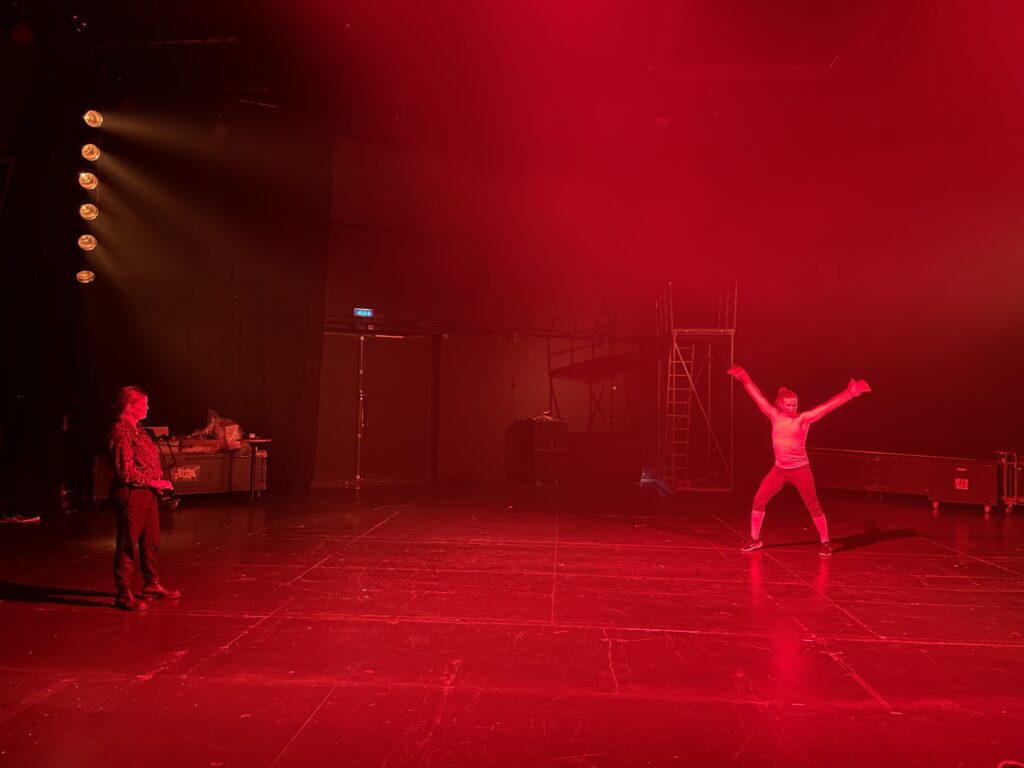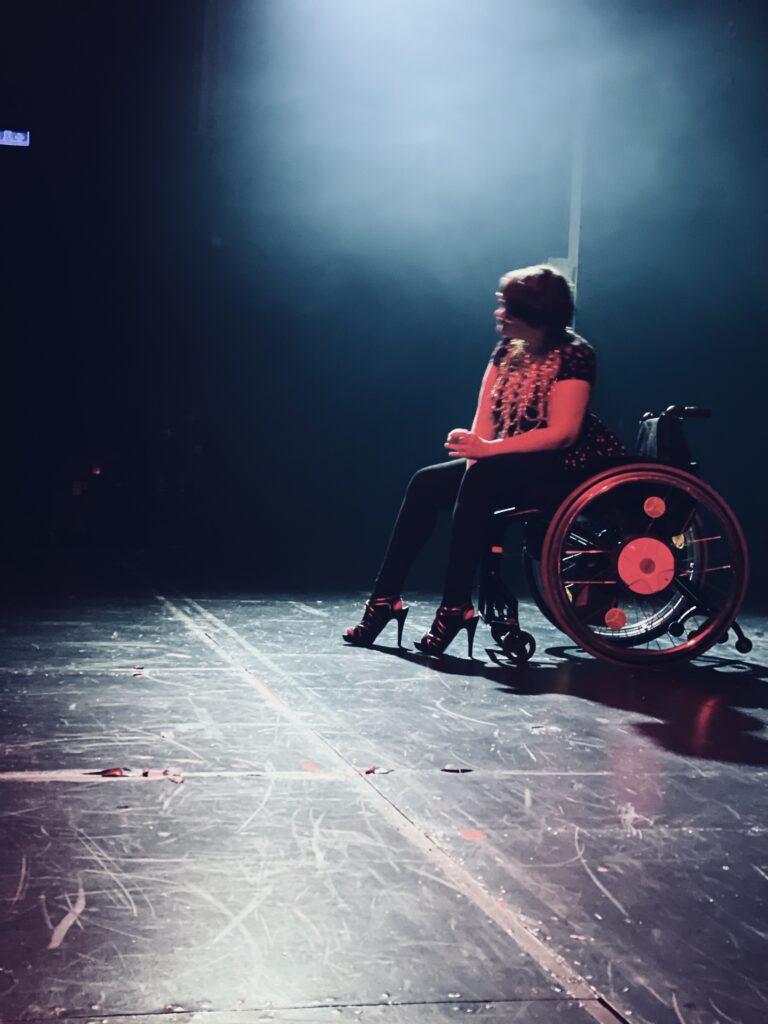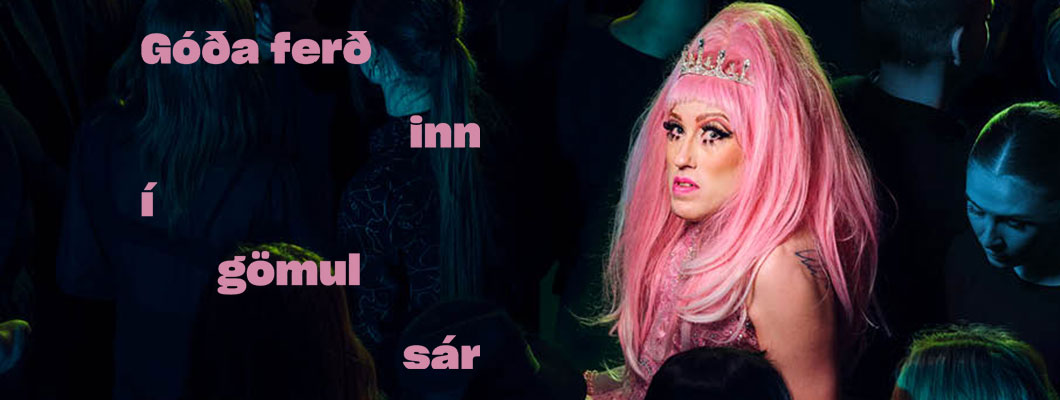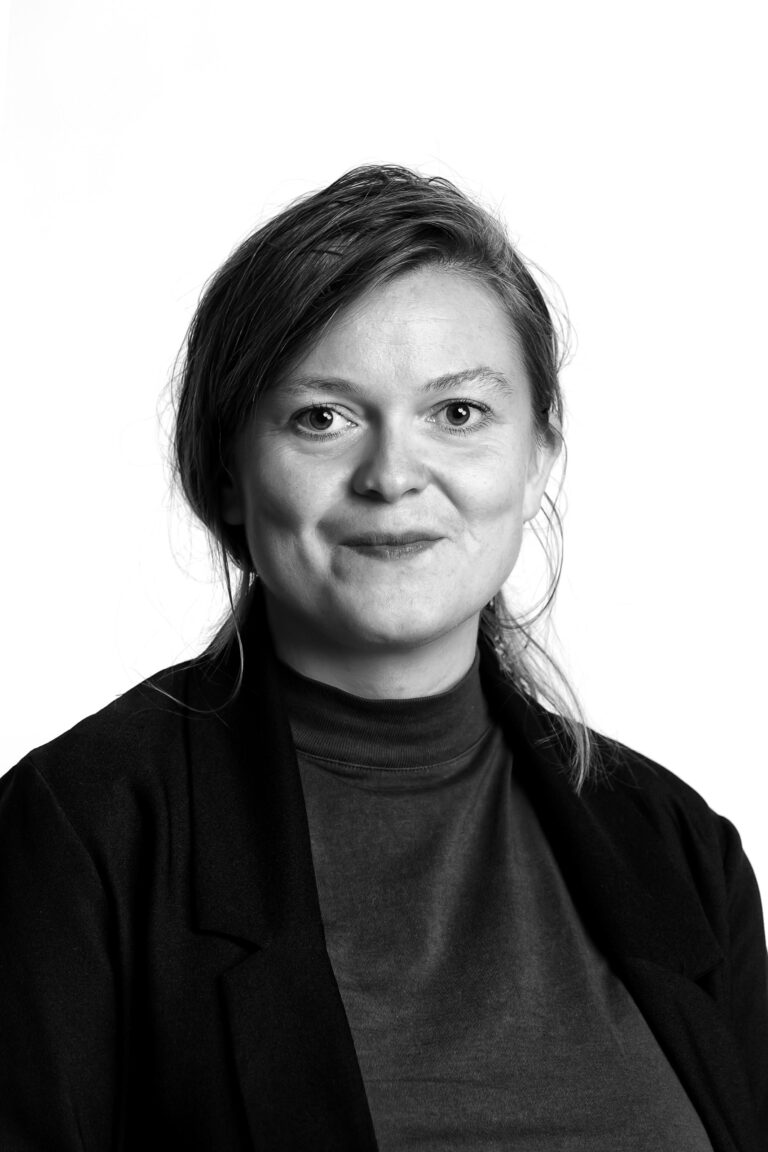A new theatre piece explores the HIV/AIDS epidemic and its effects on the lives of Icelanders. Theatremaker, Eva Rún Snorradóttier says that she was shocked when she realised how little she knew about the topic and this spurred her to create something she hopes will encourage more conversations.
It’s essential that we remember and honour the individuals who faced HIV/AIDS in the 1980s and 1990s. Before HIV was even understood, it had already caused devastation to countless lives. No single nation was exempt from the impact of HIV, including Iceland. Along with its terrible physical impact, HIV/AIDS also took a tremendous emotional and psychological toll on those who were affected. The journey of those involved with the HIV/AIDS epidemic is one of courage, resilience, and strength in the face of adversity and a world that didn’t understand or seem to care.
By remembering the stories of those who went through this and still go through it today we can better understand their struggles and we can also learn to use their experiences as motivation to help strengthen HIV/AIDS prevention initiatives.
It is now more than 40 years since the first cases of a ‘mysterious new illness’ were reported. It’s estimated that up to 113 million people have been diagnosed with HIV since the initial cases 40 years ago, and more than 40 million people have died as a result of HIV/AIDS complications.
Although we have come a long way, it’s still important to remember those who fought for their lives in this fight and one Icelandic theatre maker is bringing some of their stories to audiences at Borgarleikusið in Reykjavík. Eva Rún Snorradóttir has been working on a new theatre piece called Góða ferð inn í gömul sár (loosely translated as A nice journey into old wounds) about the HIV/AIDS epidemic in Iceland. Gay Iceland had a chat with Eva about this play, why it’s necessary and why it’s important that we keep telling these stories 40 years later.
GayIceland: Tell us about the play, what is it about?
Eva: “The work deals with the AIDS epidemic in Reykjavík in the eighties and nineties. With special emphasis on the experiences of gay people during this time.”
GayIceland: What is your approach to the subject?
Eva: “The play is actually in two parts. The first part takes place in the audience’s homes. Before they come to the show, they are sent audio files to their emails. The audio files contain a collection of interviews with people who experienced the HIV/AIDS epidemic. Accompanying these true stories is a fictional thread read by five young gay men. I tried to create a polyphonic piece based on an emotional experience. Although there are real stories involved in this project, it is primarily a piece of art and not a piece of history. The source material when dealing with something like this is massive and the audio part of the show is limited to just one beautiful hour.”
“After the audience has listened to the first part at home, they then attend Borgarleikhúsið theatre where the second part of the piece begins. Within the second part, the theatre is transformed into a gathering space; a meeting point between the viewer and the queer scene. Queer people have taken over the ‘New Stage’ and invite the audience to party. It seemed to me, early in the process, that this is the only way to finish the piece.”

GayIceland: What made you want to write about the HIV/AIDS epidemic of the 80s and 90s?
Eva: “I was shocked when I saw the Icelandic documentary Svona Fólk (a documentary series about the LGBTQ+ battle for civil rights in Iceland), the episode about the plague.
I was totally shocked that I knew so little about queer history. My story, the story of my rights. The story of my people’s wounds. The material and conversations around this part of queer history is so enormous in so many ways. This is history, endless sorrow, but history is not over. HIV is not over and we are not cured of stigma and prejudice.
It does feel like now there is something opening up in Iceland. It’s being talked about all over the place but we need more conversations about it. We need many more plays about this, books, movies and more. We need more conversations in Iceland about this exact topic. I wanted to take part in this ‘opening up.’ I wanted to do what I could to give space to talk about these things that have been silenced in the past. This is endlessly important.”
GayIceland: Do you have a personal connection to the subject?
Eva: “I don’t have a personal connection to the subject. But I can remember when I was little in an apartment block in the suburbs, there lived a mentally ill woman who wrote notes to us, her neighbours and left them on her door. Once she wrote, it was probably 1993 – I’m going on a vacation, meanwhile I’m lending my apartment to gay men with AIDS. I hope they infect you all. I don´t remember if I was more excited or scared.”
GayIceland: The play consists of recordings where people connected to the epidemic relive events relating to it. Was it hard emotionally to delve into these stories?
Eva: “Yes. It is difficult to discuss these times with the people who experienced them. Especially people from the queer scene and the families of those who died. This needs to be approached very carefully.”
GayIceland: Was it easy to find people who were willing to share these stories?
Eva: “It actually was. I decided early on to let the work lead me, not to be too busy interviewing a lot of people, rather to look at each interview as significant and make use of it. With these kinds of interviews, you don’t really get the most out of them if they are short so I opted to go for fewer interviews with more content.
There’s also a lot of information and conversations that didn’t end up in the final piece.”

GayIceland: Were there any surprises you discovered while you were collecting these stories?
Eva: “Yes a lot. A lot of details from the health care workers really surprised me even though I knew that the times had been terrible in terms of prejudice and judgement. There is also an infinite amount of beauty and strength in these stories.”
GayIceland: Did the experience teach you anything you didn’t know before you started?
Eva: “Yes. Just so much so that it’s been like a deeply nourishing college degree. In my opinion, I barely knew anything before. There are many threads to this story and it is difficult to maintain one narrative as the dominant one. But I think I didn’t truly know the consequences of the epidemic in both big and small contexts.”
GayIceland: Some people have made comparisons between the HIV/AIDS epidemic and the COVID-19 pandemic; in particular, the way it was handled by governments. From your research, in what ways do you think they are similar and different?
Eva: “Viruses don’t discriminate but imagine if COVID-19 was only associated with one particular group of people. Imagine if the world felt that this group was the only one it affected. Contagious shame is something that actually came up during COVID-19 but in many ways, it’s nothing in comparison to the shame and stigma that come with HIV/AIDS. Covid was a social crisis, everyone was in this together. HIV/AIDS was a terrible plague that, in many ways, left those who contracted it fighting for their lives alone. In many countries, nothing was done for those diagnosed. I feel like anything I say about the comparison between the two viral outbreaks will seem petty but the difference is insurmountable. I didn’t experience the HIV/AIDS epidemic myself but I know that many people who went through this arduous part of history and survived experienced severe PTSD during COVID-19.”
GayIceland: HIV is still around today, and although living with HIV is very different to what it was 30 years ago, the epidemic never really went away. Do you think this is something that needs to be talked about? Is this play a way to have these conversations?
Eva: “Yes, in many ways, the purpose of the play is to wake people up. I want people to learn about it, hear the human stories and be informed. I find it amazing how little we know about HIV today. Those who don’t have HIV in their worldview don’t really know anything about the treatments available, the preventative actions, the frequency of diagnosis and how it’s now manageable for many HIV+ people. The worst part of all of this is that even though the reality of life for someone who is HIV+ has changed dramatically, there is still so much stigma.”

GayIceland: Is there something that you think we can learn as a society about the HIV/AIDS epidemic?
Eva: “Yes totally. There’s a lot to learn, there’s everything to learn. I’m still learning every day. I hope that people come to this show, learn, and then go home being more knowledgeable but also with the desire to keep learning.”
To find out more about Eva’s theatre piece, ‘Góða ferð inn í gömul sár,’ or to book tickets, click here.


